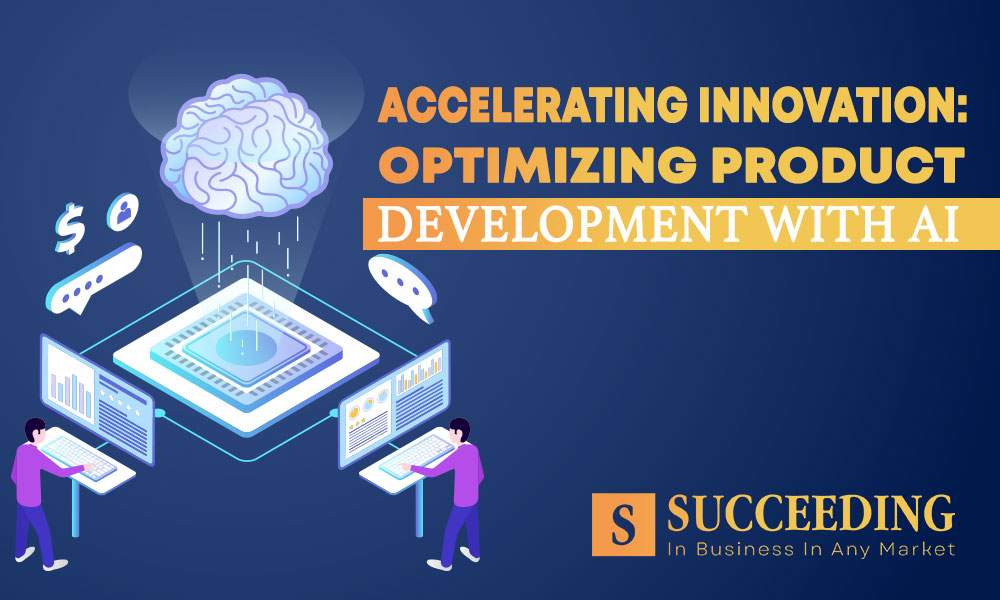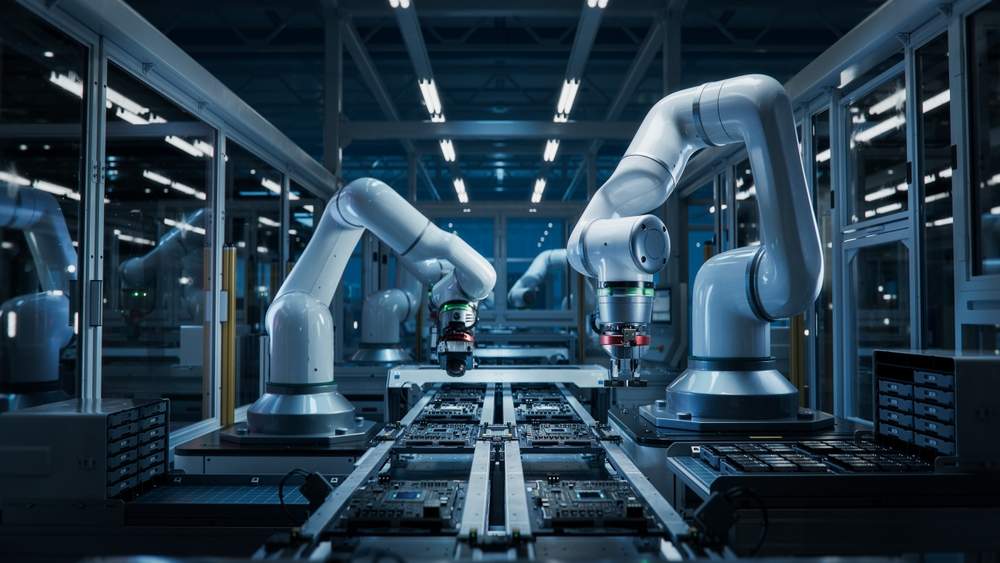Post Date: February 26, 2024

In the ever-evolving landscape of business, product development stands as a cornerstone for staying competitive and meeting the ever-changing demands of consumers. The integration of Artificial Intelligence (AI) into the product development process is redefining the traditional lifecycle and unlocking unprecedented possibilities.

The Dynamics of Product Development:
Product development traditionally involves a series of interconnected stages, from ideation and design to manufacturing, testing, and market launch. These stages often present challenges, including extended time-to-market, high costs, and the need for continuous innovation to meet consumer expectations.
AI’s Role in Product Development:
AI, with its ability to analyze vast datasets and derive actionable insights, is a transformative force in product development. Its applications span the entire product development lifecycle, offering solutions to longstanding challenges and introducing efficiencies that were once deemed unattainable.
Streamlining Ideation and Conceptualization:
AI plays a pivotal role in the ideation phase by harnessing data analytics and market research. Tools powered by AI can sift through massive datasets, identifying market trends, customer preferences, and potential gaps in the market, thereby inspiring innovative ideas and concepts.
Enhancing Design and Prototyping:
Design processes are significantly enhanced through the use of AI, particularly in generative design algorithms that explore countless design possibilities. Moreover, AI contributes to rapid prototyping, enabling quicker iterations and improvements in the design phase, ultimately reducing time and costs.
AI in Manufacturing and Supply Chain Management:
AI’s impact extends into manufacturing, optimizing processes for efficiency and quality. Machine learning algorithms can predict maintenance needs, automate processes, and enhance overall production outcomes. In supply chain management, AI aids in forecasting, inventory optimization, and logistics, ensuring a smoother flow from production to delivery.
Quality Assurance and Testing:
AI automates quality assurance processes, reducing the margin for error in product testing. Machine learning algorithms can predict potential defects, enabling proactive measures to maintain product quality and reduce the likelihood of recalls or issues in the market.
Data-Driven Decision-Making in Product Development:
AI facilitates data-driven decision-making throughout the product development lifecycle. Predictive analytics, powered by AI, helps in identifying market trends, consumer behaviors, and areas for product improvement. This ensures that decisions are grounded in insights rather than assumptions.
Implementation Strategies for Businesses:
For businesses considering the integration of AI into their product development processes, a strategic approach is crucial. This section offers practical guidance, from selecting appropriate AI tools to training teams and ensuring a seamless integration that aligns with existing workflows.
Challenges and Considerations:
While the benefits of AI in product development are evident, challenges such as data privacy concerns, the need for skilled professionals, and resistance to change must be acknowledged. Addressing these challenges is essential to realizing the full potential of AI in this context.
Future Trends in AI and Product Development:
The future of AI in product development holds exciting possibilities. Emerging trends, including the integration of augmented reality in design and prototyping, advanced simulation technologies, and personalized product customization through AI, promise to further revolutionize and optimize the product development landscape.

Conclusion:
In conclusion, the integration of AI into product development is not merely a technological enhancement; it is a paradigm shift that accelerates innovation and efficiency. From ideation to market launch, AI is a catalyst for transforming challenges into opportunities and driving businesses towards a future of unparalleled product development.
FAQs:
Q1: How does AI impact the ideation phase of product development?
AI assists in the ideation phase by leveraging data analysis and market research to generate innovative ideas. It can analyze trends, customer feedback, and competitive landscapes to inform and inspire the product development team.
Q2: Can AI improve manufacturing processes in product development?
Yes, AI optimizes manufacturing processes by enhancing efficiency and quality. AI applications in manufacturing include predictive maintenance, process optimization, and automation, leading to improved production outcomes.
Q3: How does AI contribute to better decision-making in product development?
AI facilitates data-driven decision-making by analyzing large datasets and providing actionable insights. Predictive analytics, for example, can help in identifying market trends, consumer preferences, and potential areas for product improvement.
Q4: What are some challenges businesses may face when integrating AI into product development?
Challenges may include data privacy concerns, the need for skilled professionals, and the potential resistance to change within the organization. Addressing these challenges requires careful planning, training, and a commitment to ethical AI practices.
Q5: What emerging trends in AI are expected to impact product development in the future?
Emerging trends include the integration of augmented reality in design and prototyping, advanced simulation technologies, and the use of AI for personalized product customization. These trends are poised to further revolutionize and optimize product development processes.






